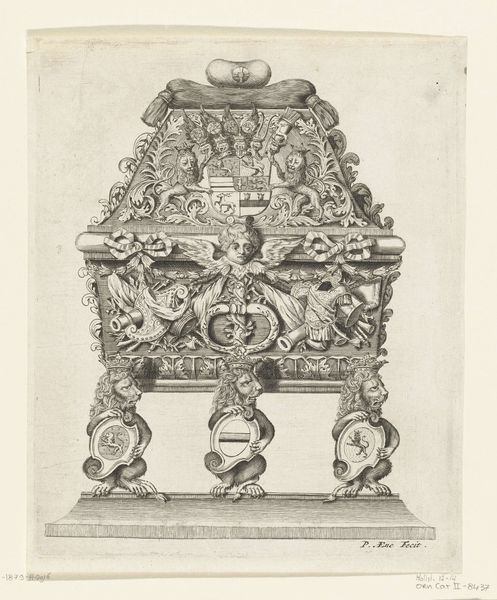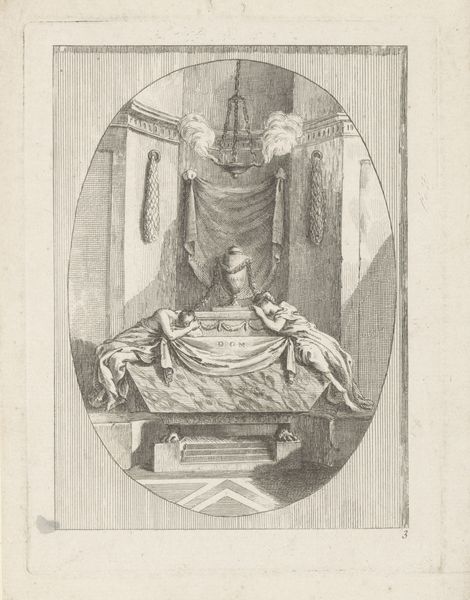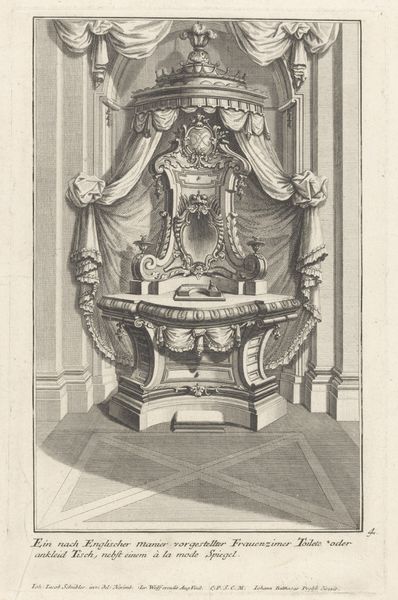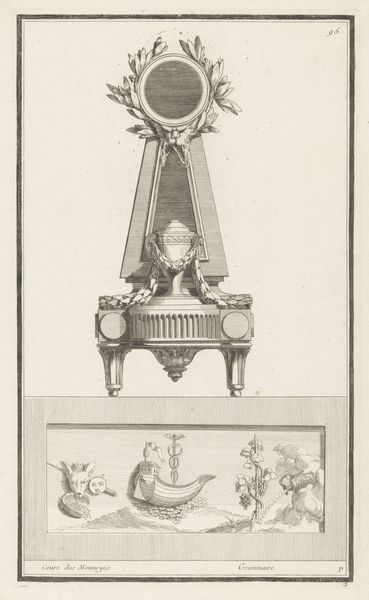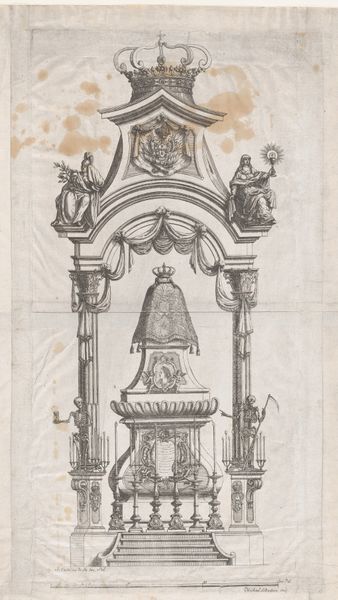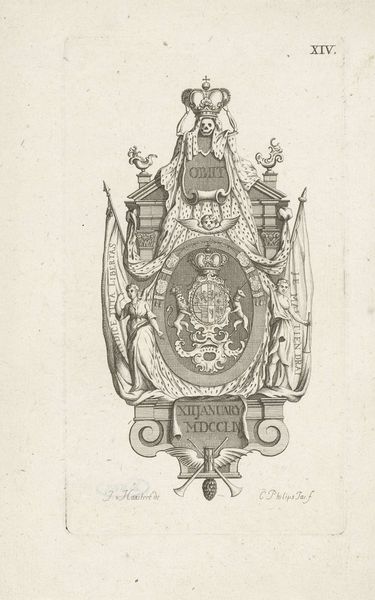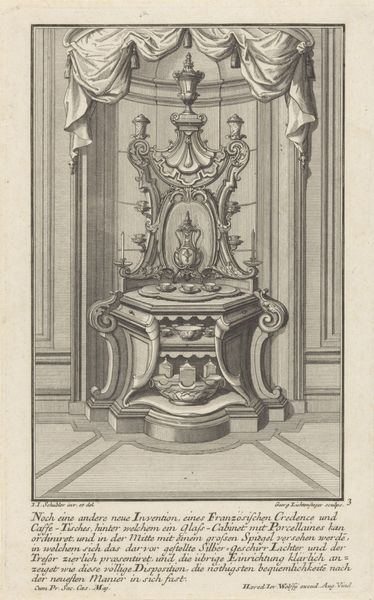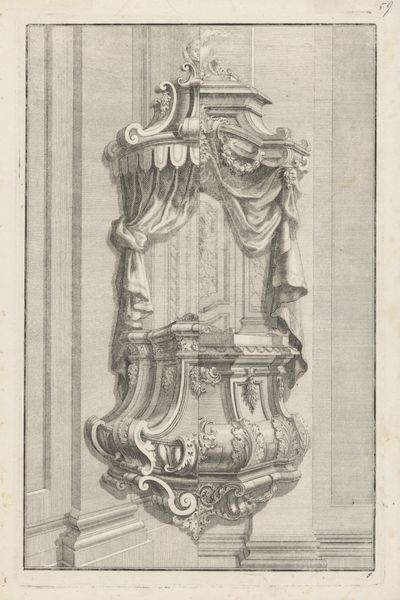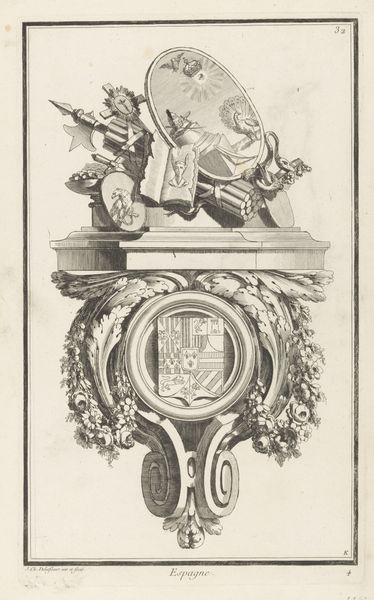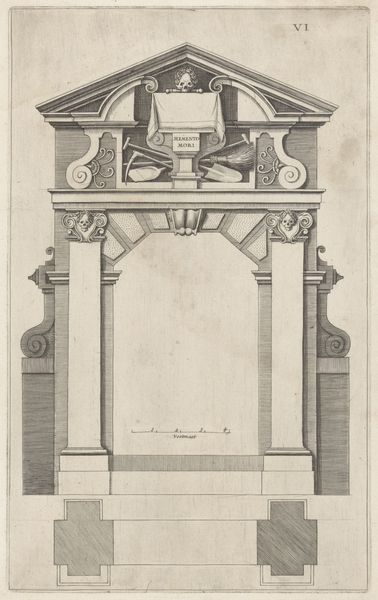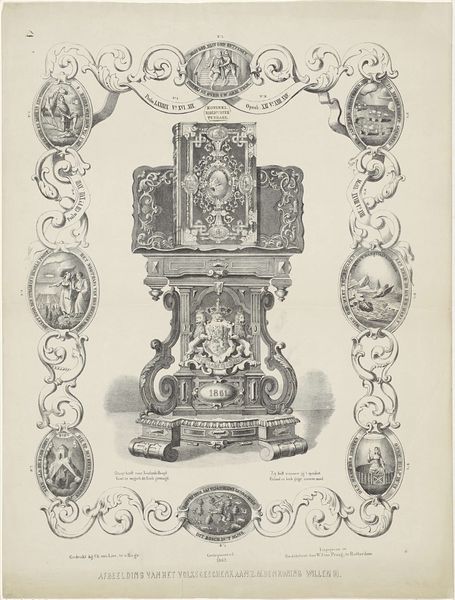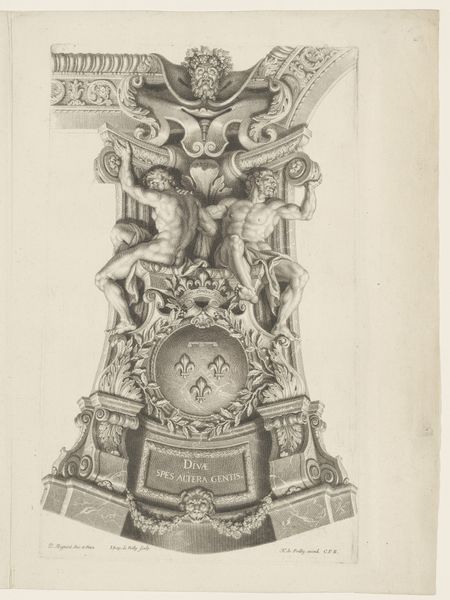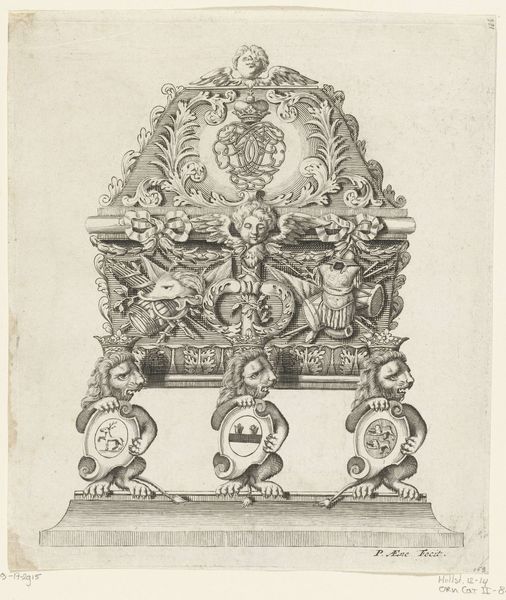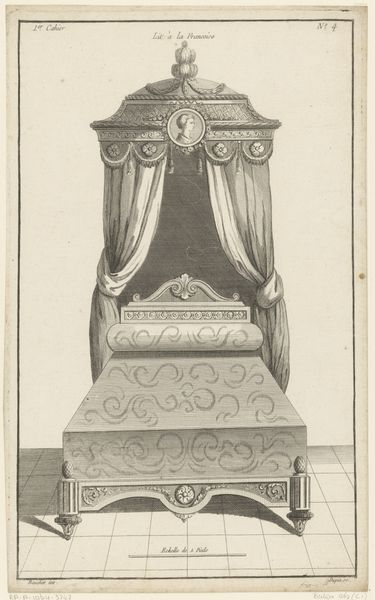
#
toned paper
#
light pencil work
#
blue ink drawing
#
quirky sketch
#
old engraving style
#
personal sketchbook
#
pen-ink sketch
#
sketchbook drawing
#
storyboard and sketchbook work
#
sketchbook art
Dimensions: height 112 mm, width 92 mm
Copyright: Rijks Museum: Open Domain
Editor: This is "Memorial to Queen Marie Antoinette of France," dating from 1793 to 1813, by Jacob Willem Strunck. It's a delicate drawing, an ink sketch, but depicts such a grand scene of mourning. What jumps out at you when you look at this? Curator: The immediate poignancy comes from understanding its historical context. Marie Antoinette, a figure of both fascination and contempt, was executed in 1793. This piece, created during or shortly after that period, reflects a specific public sentiment. Notice how the composition, the allegorical figures weeping over her effigy, aims to evoke pathos and perhaps rewrite her narrative? Editor: Rewrite her narrative? How so? Curator: Well, consider how public perception of Marie Antoinette evolved. During her life, she was often demonized as extravagant and out-of-touch. After her death, particularly with the rise of Romanticism, some saw her as a tragic victim of revolutionary excess. This memorial likely contributes to that shift, presenting her in a sympathetic, even saintly, light. See the bust above the tomb? It elevates her. Do you think the artist supported the revolution or the monarchy? Editor: I hadn't considered that! Looking at the weeping figures, and the way her bust is prominently displayed, it does seem to favor the monarchy. It makes me wonder about the role of art in shaping public opinion after such a traumatic event. Curator: Precisely. Art became a powerful tool for shaping memory and even legitimizing political positions in that era. And this small sketch hints at larger social forces at play. Editor: This really illuminates how art is more than just aesthetics. Curator: Exactly! I find this piece offers a glimpse into the turbulent politics of post-revolutionary France and the efforts to memorialize a controversial figure. It's not just a picture; it's a piece of history.
Comments
No comments
Be the first to comment and join the conversation on the ultimate creative platform.
